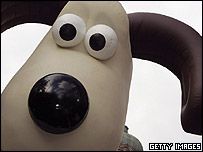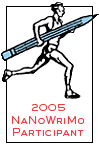It started out as a delirious suggestion by a friend at a wedding. Now we have a first meeting for 6:30 p.m., Feb. 18 in Chicago.
"Let's form a book club!" a bridesmaid suggested to me this past August at a friend's summer wedding. Pleased, I asked her what she wanted to read, and she offered, "Dogeaters," but the others said we needed to start with something more relevant, more comprehensive of Philippine literature.
They suggest we begin with the folk poems etched on bamboo by ancient ancestors in the north. Or we begin with riddles, or bugtong. The 12-syllable poems of Francisco Balagtas. Approach Philippine literature historically, so we won't forget to talk about the Noli and Fili. The short stories of the American occupation. The novels of the First Quarter Storm.
Anything but Dogeaters. "It's a good book, but by no means does it represent Philippine literature," said the bridesmaid's sister.
I sipped melon juice and thought I'm going to embarrass my upbringing if I talk further. If only they knew just how clueless I was as to how to go about forming a list of suggestions on what reading material from the homeland we might discuss. I'm just an unabashed Pinoy lit junkie. I won't know where to begin.
"Don't read chronologically, or historically. That's boring," said a friend, a professor of the humanities at the University of the Philippines. And then he paused. "Is this club going to be just for fun, or are you all out to seriously learn something?"
Clueless, I tell you. I really didn't know. All I knew was that I was happy to share with friends the books that are available here, and the ones that made a splash in Manila, like Lualhati Bautista's Dekada '70 or Edgardo M. Reyes' Sa Mga Kuko ng Liwanag (In the Claws of Light). I wondered if we would have to strike some deal with a bookseller so we can get everyone copies.
"Ganito," my friend said, "start with Jose Rizal - the Noli (Noli Me Tangere) and the Fili (El Filibusterismo), so you'll all have background in Philippine literature's traditional roots in realism and radicalism. And then, Without Seeing the Dawn by Stevan Javellana, a novel clearly in the Rizal tradition. I also recommend the following: Woman With Two Navels by Nick Joaquin, and State of War by Ninotchka Rosca. And then after all that, you can read Eric Gamalinda, Carlos Bulosan, Bino Realuyo, Arlene J. Chai, Jessica Hagedorn, Alfred Yuson, et cetera."
I squirmed in my seat: I would have to explain to my friends why in the world are we reading obscure material, and who are these writers? Should I give them a short introduction to who Alfred Yuson is, and that when Nick Joaquin died in 2004, the entire Filipino literati, down to the last journalist and poet, mourned his passing, jolted collectively as if electrocuted as one? Why aren't we starting with Dogeaters? A Pinay wrote that!
And then the professor mentioned that perhaps to prepare readers, I copy them the fun short stories - Nick Joaquin's Summer Solstice, and Beinvenido Santos' Scent of Apples and The Day the Dancers Came - and then we can move on to "the hardcore stuff, like Carlos Bulosan's America is in the Heart.
"Maybe it would be better if you guys provided summaries for books and you all voted which books to discuss next based on popularity," he said.
Impatience was setting in. The professor wanted to change the subject, and I only had a vague idea that his approach was out to teach beyond entertainment, but of course I wasn't about to learn that in ninety seconds flat with his Internet card running out.
"Kasi, committment is what these novels need," he said. "Let's change the subject."
There is such a thing as your own community telling you you've sold out for catering to the needs of those from the outside. Many Filipinos in the homeland will question your bringing the culture to the U.S., which will most likely be presented and taken in the wrong or watered-down context. There's that sentiment among the literati in the homeland, but lucky for me thus far, I don't get this vibe from the homeland professors and writers I've come across.
There's a first book out there for a book club just on Philippine literature, I knew. We just had to find it. And we hadn't even addressed Philippine literature in languages other than English - the Philippine national literary contest, the Don Carlos Palanca Memorial Awards for Literature, has categories in English, Filipino, the southern languages of Hiligaynon and Ceburano, and the northern language of Iluko, ensuing growth in the humanities in those languages.
But perhaps the first book we need to read has been apparent all along.
A title has repeatedly popped into conversations since the three months after those first conversations, consistently deemed a must read. "Have you read it?" asked a friend.
"No," I admitted, "and I don't think I want to. Unless you guys have. Or let's read it together. Have you read it?"
"It's heartbreaking. I'm so sad. It made me cry." This statement, from a graduate of the UP and the University of Illinois, currently a staff member at the Albany Park Neighborhood Council, known for her logic and integrity.
A couple other activists, after reading the book, have prostrated themselves at the foot of the author and vowed to remember his words until the end of their days.
The same UP professor who rattled off a list of suggested novels said, after reading the book, that the autobiography remains relevant. "I don't believe in comments that deem this book 'outdated' and should be struck from the lists of important texts. If that may be, it's like setting aside notes on history, or disregarding the voice of a Filipino with intentions to make the new Promised Land into a country truly democratic, free, abundant and peaceful."
And so it is set, and you are all invited. Please join us at 6:30 p.m., Saturday, Feb. 18 for a discussion of that seminal autobiography by Carlos Bulosan, America is in the Heart. Please RSVP to me at ulanmaya@gmail.com with your name and e-mail address. Please come prepared to discuss the book.
We will need your insights, your presence, and your suggestions on a book club name - the person who suggests a winning name will win a prize. Everyone is invited, Filipinos and non-Filipinos alike.
America is in the Heart is available at all the usual book outlets, but it could be available at used bookstores for cheaper, and of course, your school library and the Chicago Public Library.
Our next meeting will be on Saturday, March 11. Again, please e-mail me for a time and a venue.
See you on the 18th!
---
This piece is scheduled to appear in the February issue of the Fil-Am Community Builder newspaper. If you are unaware of the newspaper, copies can be picked up from the UniMart on Clark Street, and the paper's offices on 5232 N. Western Ave.; telephone 773-275-4540.






